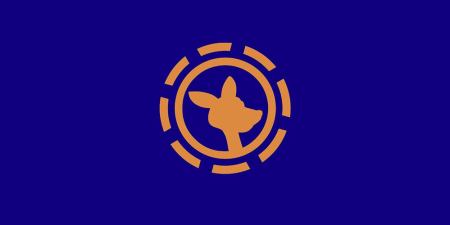Given the fact that gaming has always been a favourite pastime in the country, gambling sector in Spain occupies an important place in the overall state economy. With their activities over 50 Spanish land-based casinos contribute to the bigger part of the gambling traffic and revenue. Internet betting is also rapidly growing. A large-scale regulatory framework was provided to the sector for better functioning of the market, for proper control and regulation, for entire protection of operators and consumers' interests by The Spanish Gambling Act which was introduced in 2011. Nowadays all forms of land-based and online gambling in Spain are regulated and supervised through the Directorate-General for the Regulation of Gambling (DGOJ).
Gambling Regulation
Three main governing bodies were appointed by the Spanish Gambling Act with the mission to oversee different branches of the sector.
- The National Gambling Commission is responsible for granting licenses, resolving disputes and protecting the interests of all parties;
- The Gambling Policy Council coordinates and ensures the balance between the regional policies of the 17 autonomous regions and 2 autonomous cities of Spain.
- The Economy and Treasure Ministry determines the rules for the games.
Along with all the challenges that arise from the rights of the autonomous regions to set their own regulations and enact individual policies, the Gaming Act establishes common licensing procedures and standard of control and supervision over the operators for high quality of service. The Act focuses its work on protecting the Spanish gamblers from abuse, fraudulent activities, addictive gambling behavior and gambling engagement of minors.
Spanish Regulation Licensing
Only companies licensed by the Government are allowed to offer land-based or online gambling services in Spain. The categories that need to be licensed are: casino games, sports betting, horse racing betting, bingo and complimentary games. Companies can apply for a permit before the National Gambling Commission only if they fulfill the following requirements: To be experienced in the activity for which they request a license, to have adequate means and resources for running the business successfully, to show details for permanent residency in Spain. They will need to show also their Anti-Money Laundering plan and their fraud prevention documentation. Online operators are required to use a particular Spanish internet domain and all the connections shall be directed to this domain.
Playing with unlicensed providers is considered illegal in Spain and is punishable by fines and penalties. As mentioned above, each of the 17 autonomous regions sets its own terms and conditions, which complicates compliance with the law. For example, this led to the creation of several variations in the list of casino games which are allowed in some regions, which in turn would make it difficult for game providers. It turns out that operators have to obtain a federal as well as a regional license to start operating in one autonomous region, and for another only a federal permit is sufficient.
Advantages for Operators
From a financial point of view, Spain has been generally known as a lucrative gambling market. Under the recent legislation in 2018 a significant increase in gaming activity has been seen with revenues bigger than €180 million! As an additional benefit for operators can be given the fact that licensees are allowed to online and offline.
The line that the legislation has adopted regarding the illegal offering of gambling services is strict. Fines and penalties are enormous. Thus licensed suppliers are protected from unfair competition.
Advantages for Players
The figures show that the number of gamblers in Spain is constantly growing. The reasons can be different, but undoubtedly one of them is the government's concern to protect the interests of users of this type of entertainment.
In order to ensure the well-being of the gambling population, taking into account the needs of the new time, the Spanish Gambling Act from 2018 formalized and reconstructed The Advisory Council on Responsible Gaming into the Directorate-General for the Regulation of Gambling (DGOJ). Spanish gamblers are currently allowed to gamble with complete peace of mind as the DGOJ resolves all disputes under state law.
The fact that they block the activities of any illegal operators in the country creates a safe and secure gambling environment for users of these games.
With the ever-changing daily life, with the many technologies embedded in the software products of the gambling industry, the possibilities of lies and fraud are also increasing. The protection of suppliers and users of gambling activities can be achieved only through strict measures of regulation and control of business carried out by the government.
Due to their state divisions and autonomous cities the gambling regulation in Spain can be admitted as rather complex. With the efforts of the government to change the legal provisions and with the more affective and active work of the Directorate-General for the Regulation of Gambling (DGOJ) the Spanish residents can enjoy fairly risk-free gambling. New operators are attracted to provide their services in the country to keep the players entertained.















